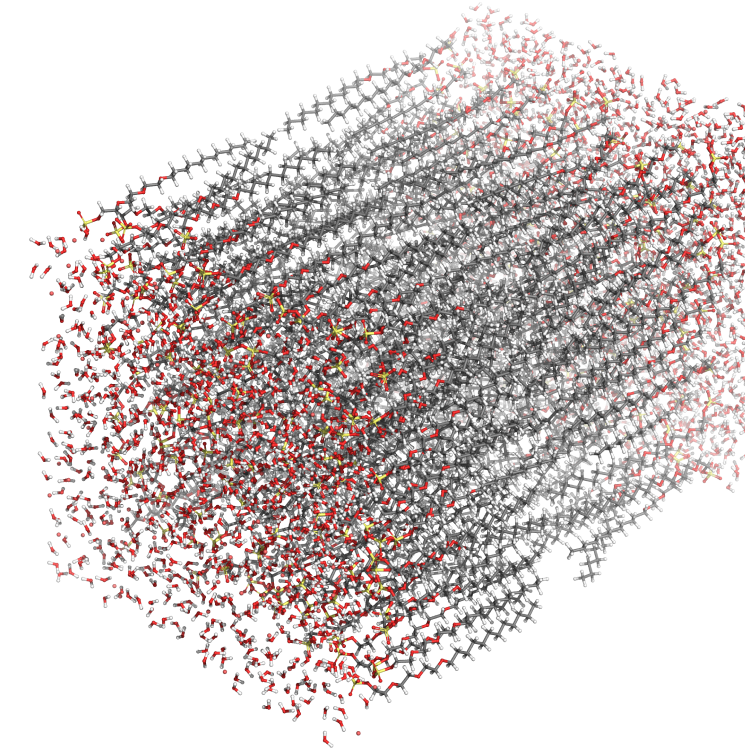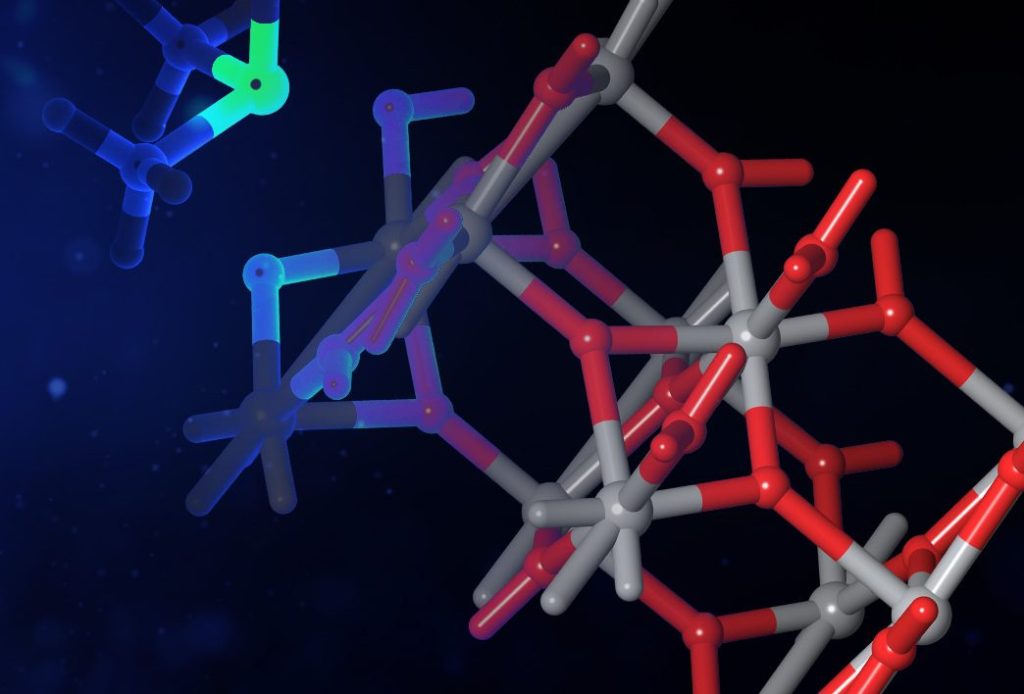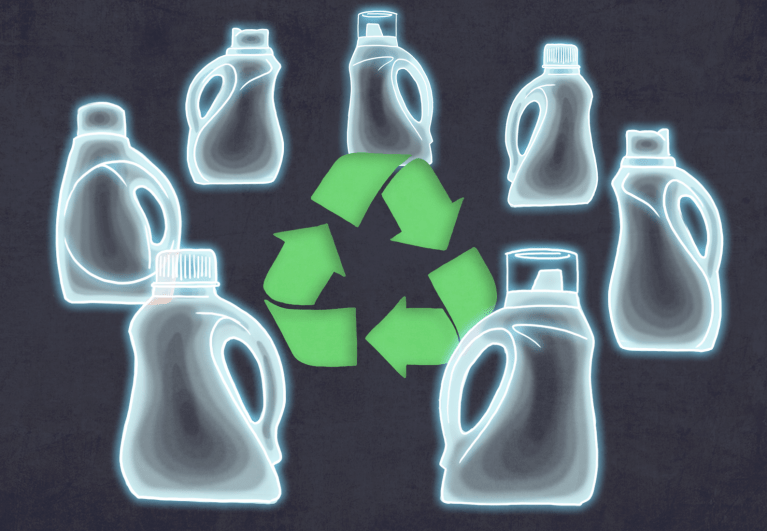

Harness molecular simulation to accelerate innovation for consumer goods
Molecular modeling and simulation provide new opportunities to accelerate R&D product development, rationalize behavior at the nanoscale, optimize manufacturing processes, and reduce costs by offering insights into the atomic-level properties that impact product performance.
With Schrödinger’s digital chemistry platform, you can access extensively validated tools to predict key performance indicators for consumer products. By building and simulating complex molecular systems that directly relate to product formulas, you can make informed decisions and create game-changing ingredients and products in response to the rapidly changing trends in consumer goods markets.
Design, develop, & optimize for a full range of consumer products
Meet consumer demands with molecular-level insights
Predict physicochemical, morphological, optical, interfacial, and sensory properties for:
- Ingredient selection
- Product formulation development, modeling complex formulations with all the critical ingredients
- Optimization of processing conditions at multiple scales, from bench to pilot plant to factory
- Product stability by studying product-packaging interactions
- Product performance by modeling products in action
Enable rational design of healthier, tastier foods
Your ability to design the next generation of sustainable food starts at the molecular level
- Understand how ingredient interactions and product stability impacts shelf life by predicting degradation, compatibility, and phase behavior
- Optimize food and beverage processing conditions by looking at phase behavior, pressure, and temperature
- Study how proteins interact with ingredients and how unfolding affects food texture
- Understand the molecular basis of odor and flavor molecular activation
- Study the behavior of micro- and nano-emulsions
Transform cosmetic and personal care product development with digital chemistry
Accelerate product formulation design by leveraging virtual testing of product performance at the nanoscale
- Computationally explore formulation design space of cosmetics, fragrance, and personal care products before running experiments
- Predict chemical and optical stability of ingredients and explore their degradation
- Understand complex emulsion behavior and stability at multiple scales including morphology
- Mimic product testing using biological interface models to gain insight to a range of properties (physical to sensory)
- Derisk bio-based drop-in replacement ingredients using physics-based simulations to ensure compatibility and product performance
Design sustainable, efficient cleaning products at the molecular level
Transform cleaning product development with digital chemistry
- Gain molecular insight into antimicrobial mode action that mimics experiment (i.e. electroporation of microbial membranes with antimicrobial actives)
- Design next-generation, sustainable active ingredients
- Predict performance on different surfaces like fabrics and hard surfaces
- Develop machine learning models for assessing safety (e.g. toxicity)
Accelerate the development of sustainable packaging materials
Leverage powerful digital simulations to accelerate discovery of novel packaging materials
- Understand chemical compatibility between packaging and product ingredients and formulations
- Virtually test the key properties of new sustainable packaging materials (mechanical, transport properties, moisture sensitivity)
- Perform life cycle assessment analysis of packaging materials
- Gain novel insights into product-packaging interactions and how they affect shelf life

Technology in action
Case studies & webinars
Discover how Schrödinger technology is being used to solve real-world research challenges.
Beyond AI: The importance of physics-based simulations in next generation food design
Advanced Machine Learning and Molecular Simulations for Formulation Design
Designing better packaging materials with a reduced risk of contamination and longer shelf-life using molecular simulations
Prediction of moisture adsorption and effects on amorphous amylose starch
Molecular dynamics and coarse-grained simulations facilitate the design of new eco-friendly cosmetic formulations
Cutting-edge cosmetics: Innovating for sustainability with machine learning & molecular simulations


Molecular modeling for materials science applications: Consumer packaged goods course
Online certification course: Level-up your skill set in consumer goods product modeling
Learn how to apply Schrödinger’s industry-leading software to predict key properties of simple and complex material formulations for consumer goods with automated workflows and machine learning models.
- Self-paced learning content
- Hands-on access to Schrödinger software
- Guided and independent case studies
Documentation & Tutorials
Get answers to common questions and learn best practices for using Schrödinger’s software.
Key Products
Learn more about the key computational technologies available to progress your research projects.
Formulation ML
Automated machine learning solution to generate accurate formulation-property relationships and screen new formulations with desired properties
Virtual Cluster
Secure, scalable environment for running simulations on the cloud
Jaguar
Quantum mechanics solution for rapid and accurate prediction of molecular structures and properties
MS Penetrant Loading
Molecular dynamics (MD) modeling for predicting water loading and small molecule gas adsorption capacity of a condensed system
Desmond
High-performance molecular dynamics (MD) engine providing high scalability, throughput, and scientific accuracy
MS CG
Efficient coarse-grained (CG) molecular dynamics (MD) simulations for large systems over long time scales
OPLS4 & OPLS5 Force Field
A modern, comprehensive force field for accurate molecular simulations
DeepAutoQSAR
Automated, scalable solution for the training and application of predictive machine learning models
MS Transport
Efficient molecular dynamics (MD) simulation tool for predicting liquid viscosity and diffusions of atoms and molecules
Training Tutorials
Machine Learning for Sweetness
View tutorialBuilding a Coarse-Grained Surfactant Model with Martini Force Field
View tutorialPenetrant Loading
View tutorialCalculating Surfactant Tilt and Electrostatic Potential of a Bilayer System
View tutorialPublications
Browse the list of peer-reviewed publications using Schrödinger technology in related application areas.
Shearing Friction Behaviour of Synthetic Polymers Compared to a Functionalized Polysaccharide on Biomimetic Surfaces: Models for the Prediction of Performance of Eco-designed Formulations
Coscia B.J. et al. Polym. Degrad. Phys. Chem. Chem. Phys., 2023,25, 1768-1780
Exploring the Effects of Wetting and Free Fatty Acid Deposition on an Atomistic Hair Fiber Surface Model Incorporating Keratin-Associated Protein 5-1
Sanders J.M. et al. ACS Appl. Langmuir 2023, 39, 15, 5263–5274
Brewers’ spent hop revalorization for the production of high added-value cosmetics ingredients with elastase inhibition capacity
Scientific Reports, 2022, volume 12, Article number: 22074
Software and services to meet your organizational needs
Software Platform
Deploy digital materials discovery workflows with a comprehensive and user-friendly platform grounded in physics-based molecular modeling, machine learning, and team collaboration.
Research Services
Leverage Schrödinger’s expert computational scientists to assist at key stages in your materials discovery and development process.
Support & Training
Access expert support, educational materials, and training resources designed for both novice and experienced users.


